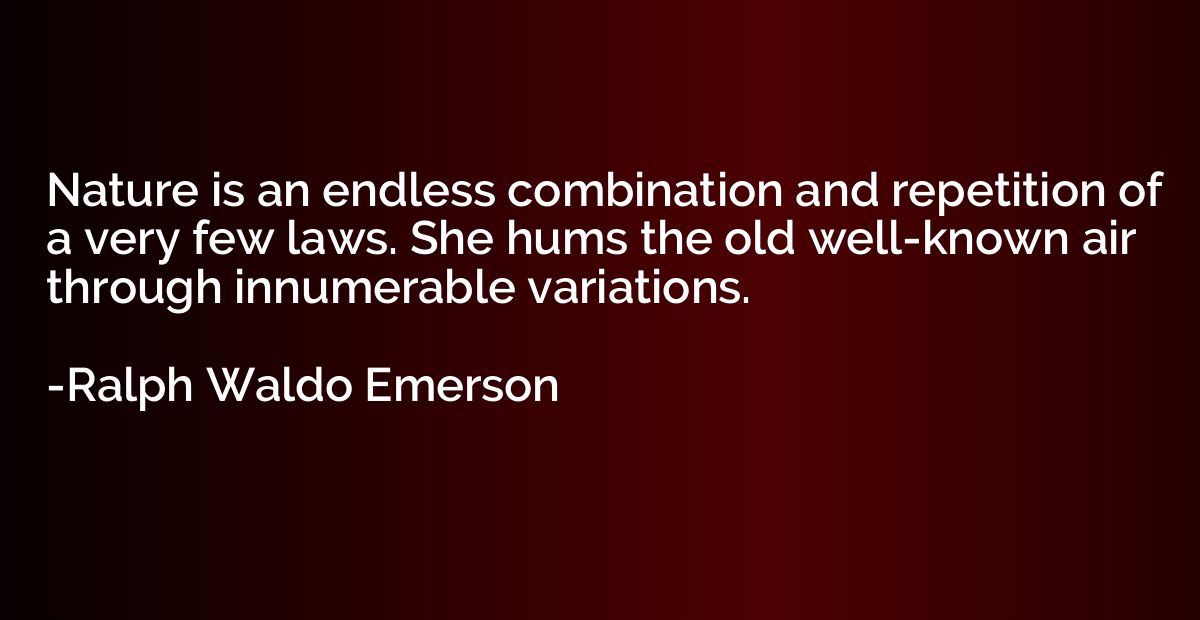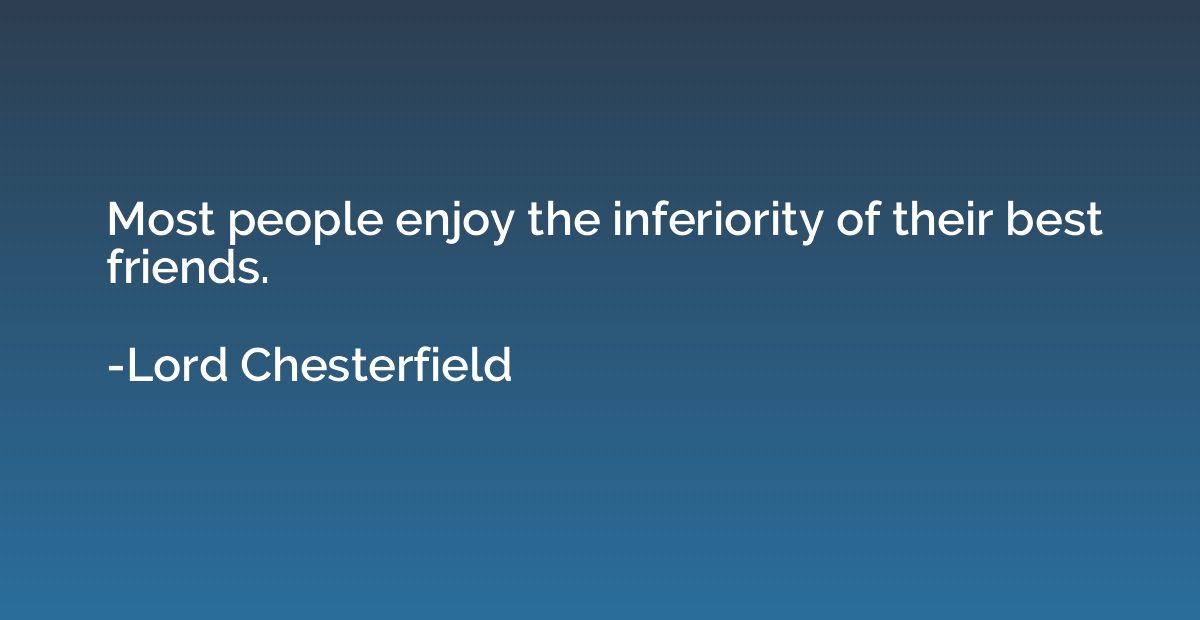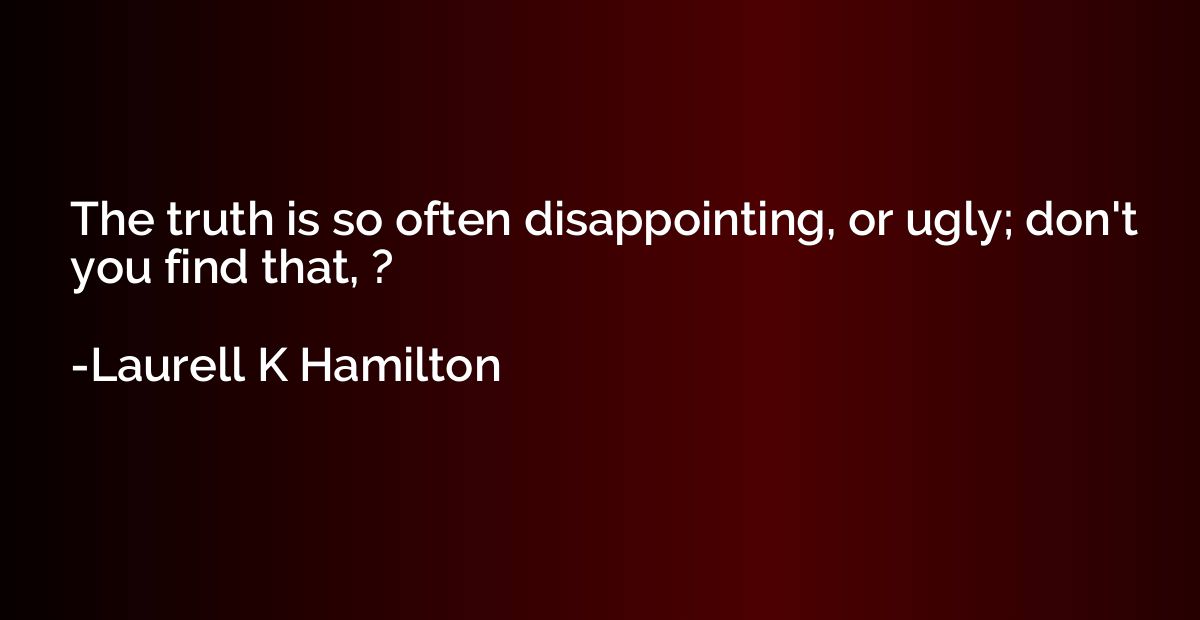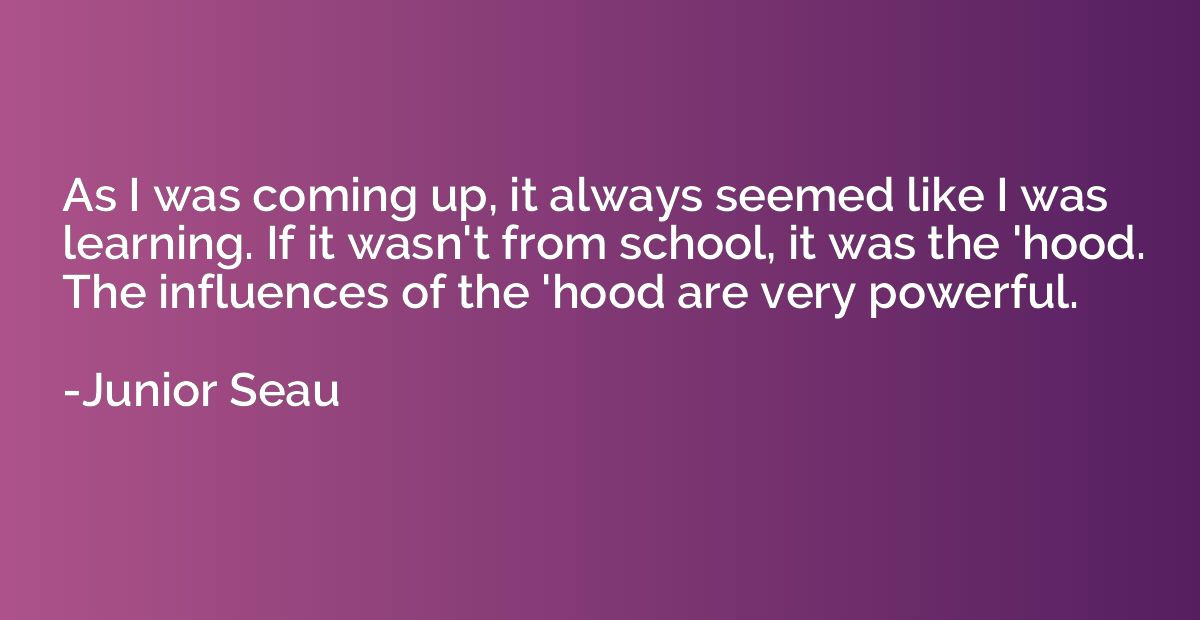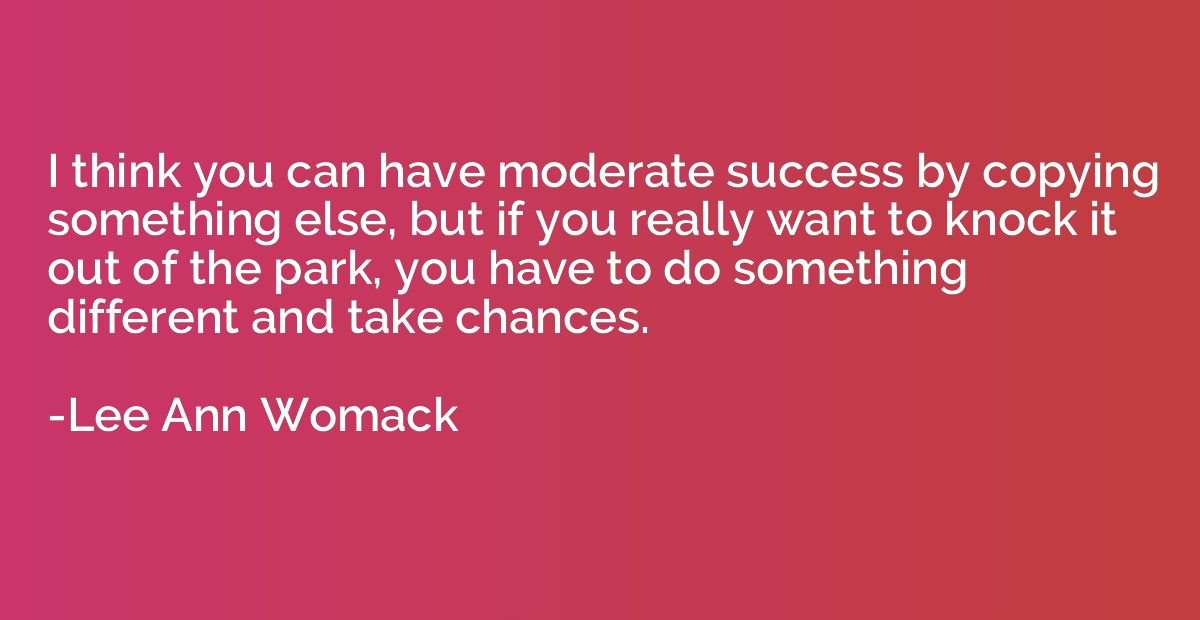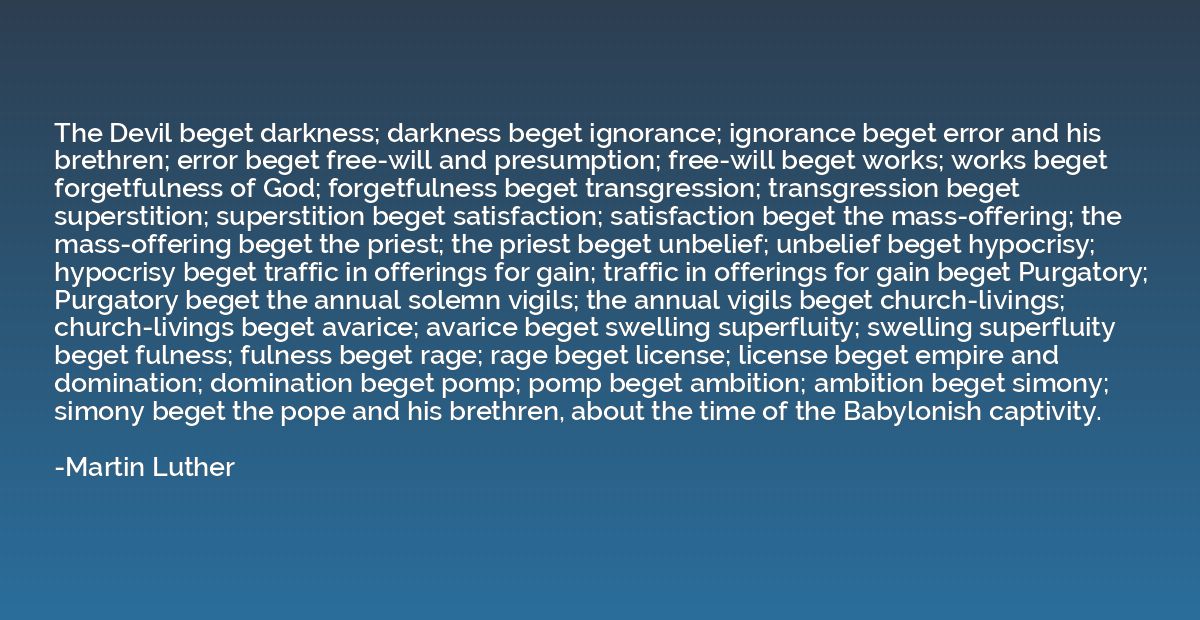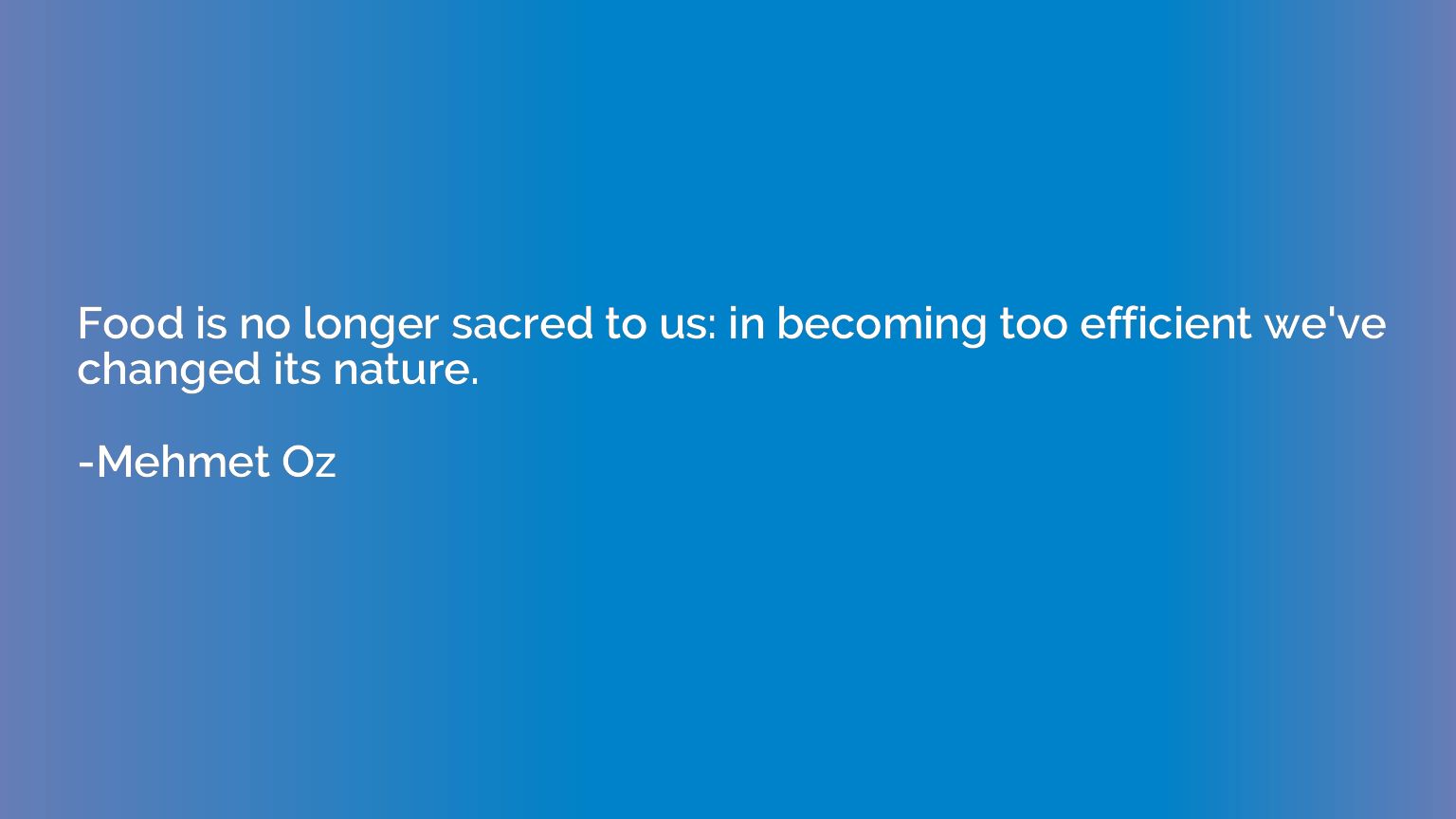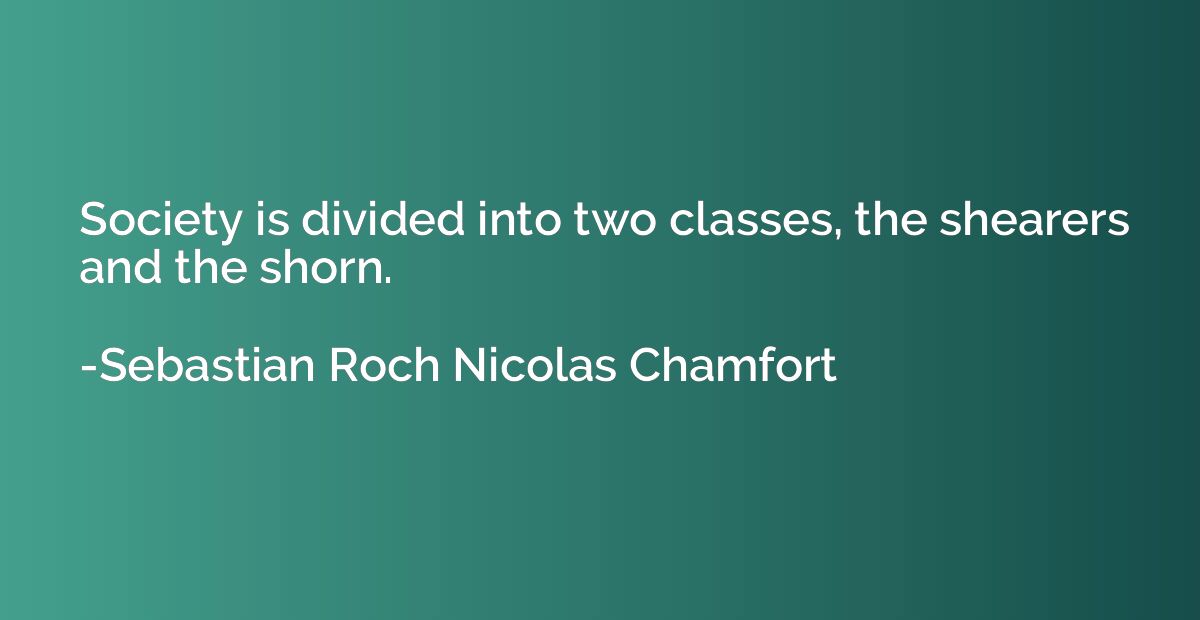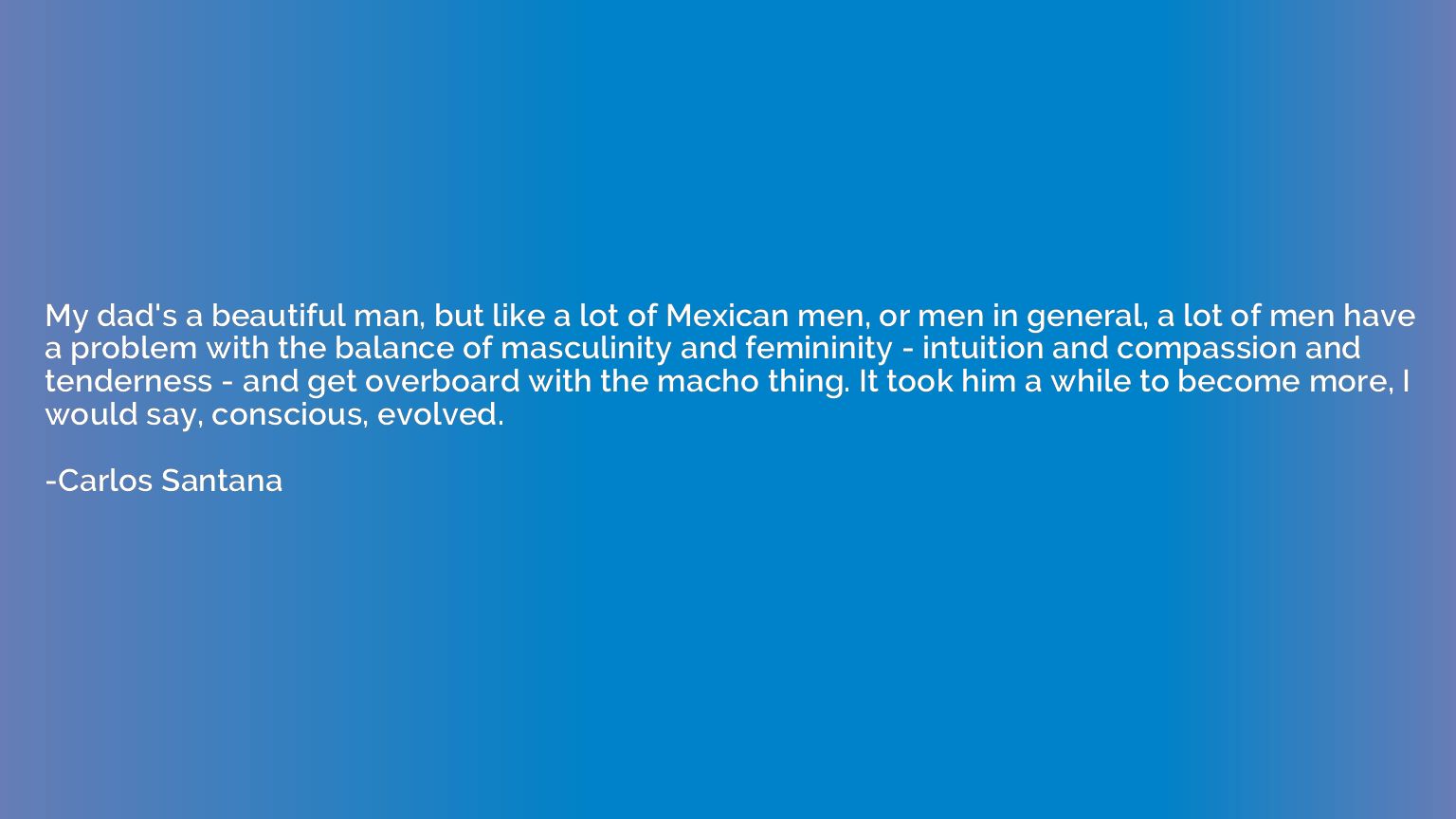Quote by Plato
Imagine that the keeper of a huge, strong beast notices what makes it angry, what it desires, how it has to be approached and handled, the circumstances and the conditions under which it becomes particularly fierce or calm, what provokes its typical cries, and what tones of voice make it gentle or wild. Once he's spent enough time in the creature's company to acquire all this information, he calls it knowledge, forms it into a systematic branch of expertise, and starts to teach it, despite total ignorance, in fact, about which of the creature's attitudes and desires is commendable or deplorable, good or bad, moral or immoral. His usage of all these terms simply conforms to the great beast's attitudes, and he describes things as good or bad according to its likes and dislikes, and can't justify his usage of the terms any further, but describes as right and good the things which are merely indispensable, since he hasn't realised and can't explain to anyone else how vast a gulf there is between necessity and goodness.
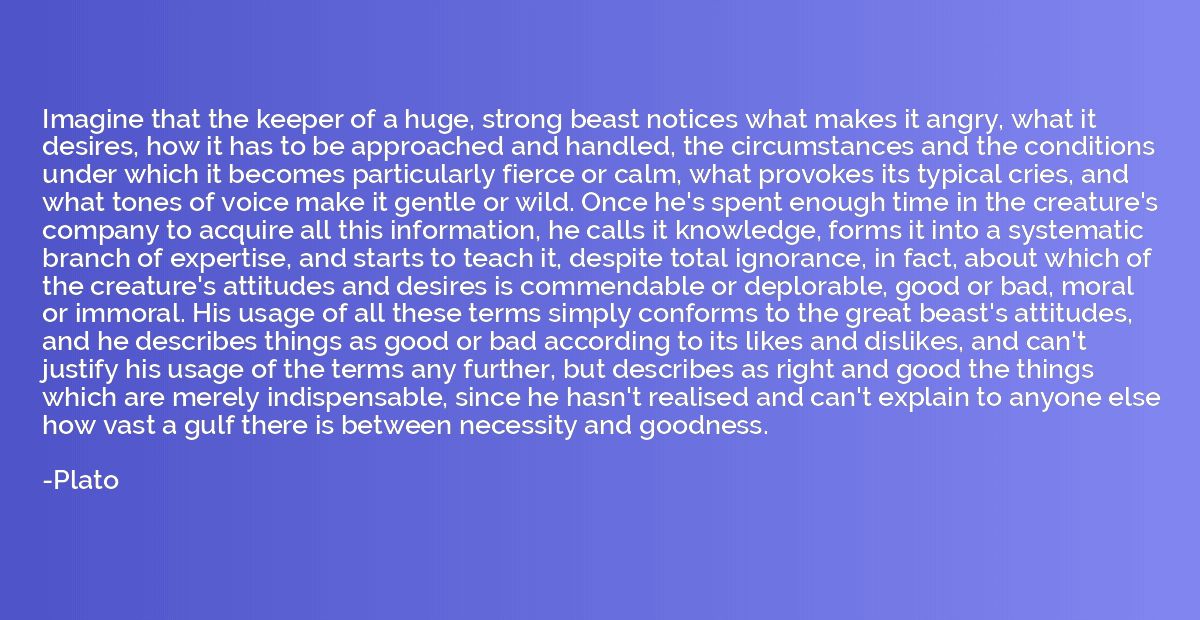
Summary
The quote illustrates the danger of equating survival or necessity with morality, suggesting that just because something is deemed necessary does not make it morally good or virtuous. The analogy of the keeper and the beast highlights how subjective perspectives can influence our understanding of right and wrong. It emphasizes the importance of questioning and reflecting on our assumptions, as simply following what is necessary or desirable according to societal or personal attitudes may not align with true moral values. The quote invites us to delve deeper into understanding the distinction between what is necessary for survival and what truly constitutes moral goodness.
Topics
Goodness
By Plato



